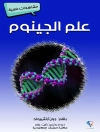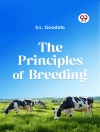This book presents advanced reviews on latest developments and future trends of animal biotechnology with focus on computational and experimental approaches. The articles in this book discusses the implications of recent methods in animal biotechnology to improve the livestock production. Applications of omics technologies and system biology approaches for livestock production and animal disorders were discussed in detail.
The evolution of transgenic technology, genome editing and markers for early pregnancy detection were elucidated in this book. A couple of chapters were dedicated to understanding the role of gut microbiome, probiotics and prebiotics on livestock health and production. The nanomaterials have been shown been shown beneficial effects in biological applications. This book also discussed the veterinary applications of nanomaterials. The articles of this book provide state of the art information that is appropriate to academicians, researchers and students who are involved in the animal biotechnology research.
Daftar Isi
Chapter 1: Applications of Omics technologies in livestock production, improvement and sustainability.- Chapter 2: System biology research to advance understanding of canine cancer.- Chapter 3: Evolution of transgenic technology: From Random Transgenesis to Precise Genome Editing.- Chapter 4: Pregnancy associated cytokines for successful pregnancy establishment in bovines.- Chapter 5: Data-driven and AI approaches for system-wide prediction of the druggable proteome to drug discovery in farm animals.- Chapter 6: Recent Advances in the Role of Probiotics and Prebiotics in Animal Nutrition: An Overview.- Chapter 7: System biology-based understanding of gut microbiome role in cattle production and Health.- Chapter 8: Nanoparticles and their prospective solicitations in veterinary medicine
Tentang Penulis
Dr. Vinod Kumar Yata is currently serving as the research director and principal scientist at the Research Centre of KBK Multi-Specialty Hospitals in Hyderabad, India. He is also serving as a visiting faculty at the centre for biotechnology, Institute of Science and Technology, Jawaharlal Nehru Technological Institute, Hyderabad, India, India. Before this role, he worked as a research scientist at the Center of Excellence for Aging and Brain Repair at the University of South Florida (USF) in Tampa, Florida, USA. He also held the position of Research Associate at the National Dairy Research Institute in Karnal, India.. Previously, he worked as an assistant professor at the department of biotechnology, Dr. B R Ambedkar National Institute of Technology Jalandhar, Punjab, India. He received his Ph.D. in biotechnology from Indian Institute of Technology Guwahati. He specializes in interdisciplinary research which includes nanotechnology, microfluidics, animal biotechnology, cancerbiology and bioinformatics. He has developed a microfluidic device for the separation of live and motile spermatozoa from cattle semen samples. His research interests are focused on the development of nanocarriers, understanding prodrug enzyme therapy, and targeted drug delivery. He elucidated the structural features and binding interactions of several biomolecules by in silico methods. He has published several research articles in peer reviewed international journals and presented papers in several international conferences.
Dr. Ashok Kumar Mohanty is an eminent scientist in Animal Biotechnology and is currently serving as Director, ICAR- Central Institute for Research on Cattle (CIRC), Meerut, India. Previously, he served as a Joint Director, ICAR-Indian Veterinary Research Institute, Mukteswar, Uttarakhand, India He worked as a principal scientist at Animal Biotechnology Centre, ICAR-National Dairy Research Institute, Karnal, India. His group is involved in various basic and applied research related to animal production systems. His research group has made pioneering contributions in animal biotechnology, with emphasis on gene cloning, expression and functional characterization of animal proteins, proteomics in animal production, cell and molecular biology, and structural biology of proteins.
Dr. Eric Lichtfouse is professor at Xi’an Jiaotong University who has invented carbon-13 dating, a molecular-level method allowing to study the dynamics of organic compounds in temporal pools of complex environmental media. He is Chief Editor of the journal Environmental Chemistry Letters, and the book series Sustainable Agriculture Reviews and Environmental Chemistry for a Sustainable World. He is the author of the book Scientific Writing for Impact Factor Journals, which includes an innovative writing tool: the Micro-Article.












